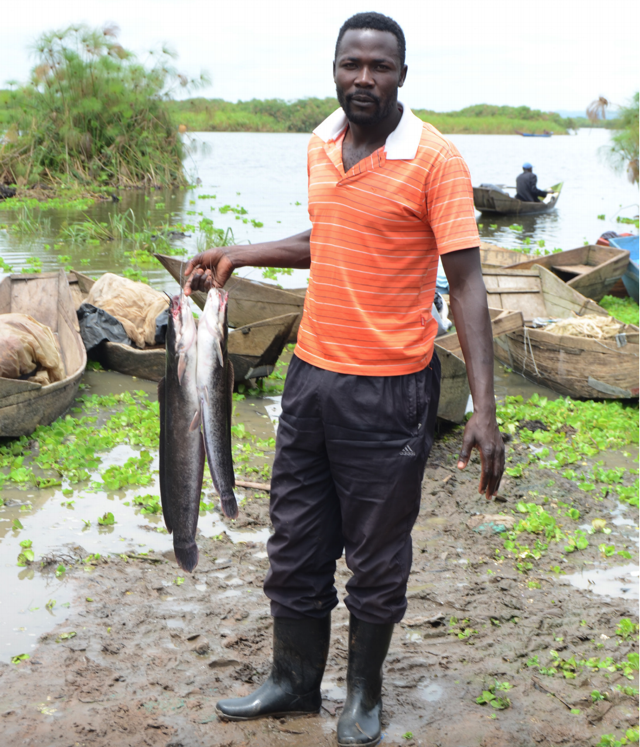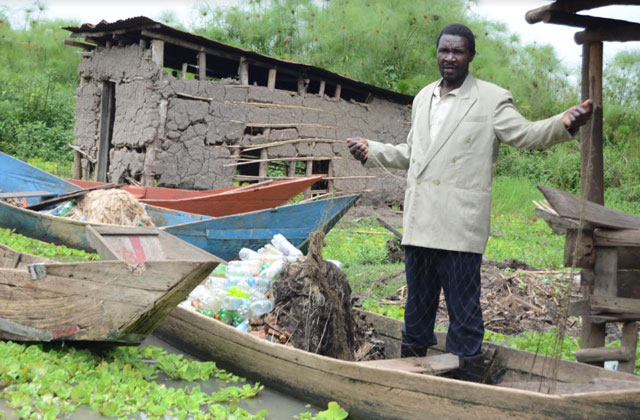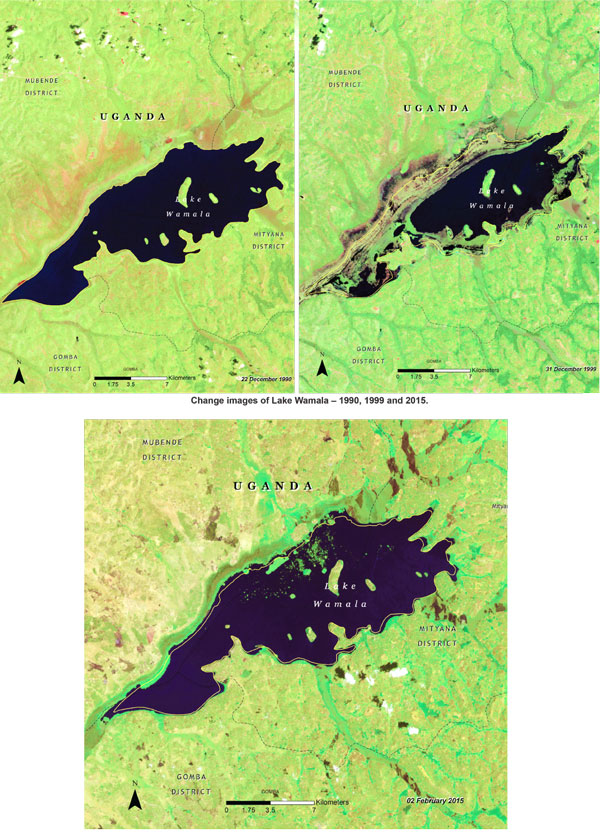
Can nature rescue small lake with rich history that mystics and conservationists have failed to save?
Kampala, Uganda | RONALD MUSOKE | It is a small 97 sq mile lake on the western edge of Uganda’s central region and quite shallow; just 4.3 metres at its deepest. So compared to Lake Victoria which is about 26,828 sq miles and 80 metres deep, Lake Wamala is nothing more than a puddle that does not show up on most maps.
Yet many residents who live around the cool and breezy shores of this lake describe it as a big source of livelihood for thousands of people. They also say that it is part of their heritage, with some residents worshipping the lake and almost everyone holding it in awe.
“This lake does not entertain drunkards, it does not like immorality,” says David Tebajanga, a 47 year-old fisherman, “If you don’t obey its rules, it can suddenly turn rough and kill fishermen and travellers.”
Tebajanga also advises against misuse of the lake’s resources.
“This lake knows how to protect itself. When we transgress it, it hides the fish and we have to go to Nakyegalika to ask for forgiveness,” he says.
Nakyegalika is one of several spiritual grounds on the lake’s shores which some fishing community members go to for their mystical animist rituals.

Tebajanga has been fishing on the lake for the last 30 years. He was born and bred at Lubajja landing site, one of about 25 landing sites that dot this lake and is just a few kilometres away from the main town of Mityana, a booming municipality 70 km west of Kampala.
Like almost everyone else here, Tebajanga sees the lake as his source of livelihood. He says he has watched people “come to the lake with nothing but leave after a few years with enough capital to start new businesses” in Mityana Municipality.
Esther Ndyanabo, a former Mayor of the town and Elijah Ssenyonjo, the Mityana District Fisheries Officer agree.
“This town has many residents who have really made it big thanks to their fortunes from fishing on Lake Wamala,” says Ndyanabo.
Lake slowly disappearing
But Ssenyonjo says although the lake has supported the development of Mityana town, it has also suffered as a result of ignorance of immigrants and people who have no regard for its heritage.
“They come here, buy pieces of land and start growing crops on the shores of the lake,” he says.
According to Ssenyonjo and other conservationists, the lake is slowly disappearing due to rapid encroachment by a growing population, poor fishing practices, climate change, and bad management due to local politics.
Yasin Bbira, the Mityana District Natural Resources Officer says central forest reserves like Bulonda in Busimbi sub-county which surrounded the lake are gone and its wetlands and buffer zone of about 200 metres where the fish breed have also been degraded.
“This land degradation has in turn caused soil erosion. Whenever it rains, the silt enters the lake and when it accumulates, it pushes the lake farther inside. It pushes the shoreline, making the lake shrink.”
Bbira says the lake is losing its once rich plant and animal life which conservationists refer to as biodiversity.

“The wetland inventory last done in the early 2000s showed the species richness around Lake Wamala,” he says, “Although we have not updated that inventory, it is evident that some biodiversity has been lost for good.”
He says hippopotamus and other animal and plant species which used to call the lake and forest reserves home are gone.
“This is our lake and we want it to continue benefiting us, our children and grandchildren,” says Tebajanga but he says he sees new faces on the lake. He says these people could be coming from the bigger lakes like Victoria, where they have been chased by law enforcement officers.
Tebajanga told The Independent that more farmers have also descended onto the lake’s buffer zones to grow tomatoes, which need a lot of water for irrigation but also pesticides which wash off into the lake whenever it rains.
“The pesticides are not good for the fish,” he says.
Naturally, the ongoing decline in freshwater biodiversity impacts the livelihoods of the rural poor in the basin, and many are worried.
Tebajanga, who also works with Lubajja Fishers and Lake Users Group, blames politics, which has infiltrated the lake management committees.
“When we try to implement the policies which we all agreed upon, the culprits run to influential politicians citing persecution. The politicians come and say, ‘Leave my voters.’”
He also blames the fishermen who are not only increasing in number but also increasingly using bad fishing methods which indiscriminately capture young fish.
 The Independent Uganda: You get the Truth we Pay the Price
The Independent Uganda: You get the Truth we Pay the Price






Free porno adult free web cams porno free porno chat